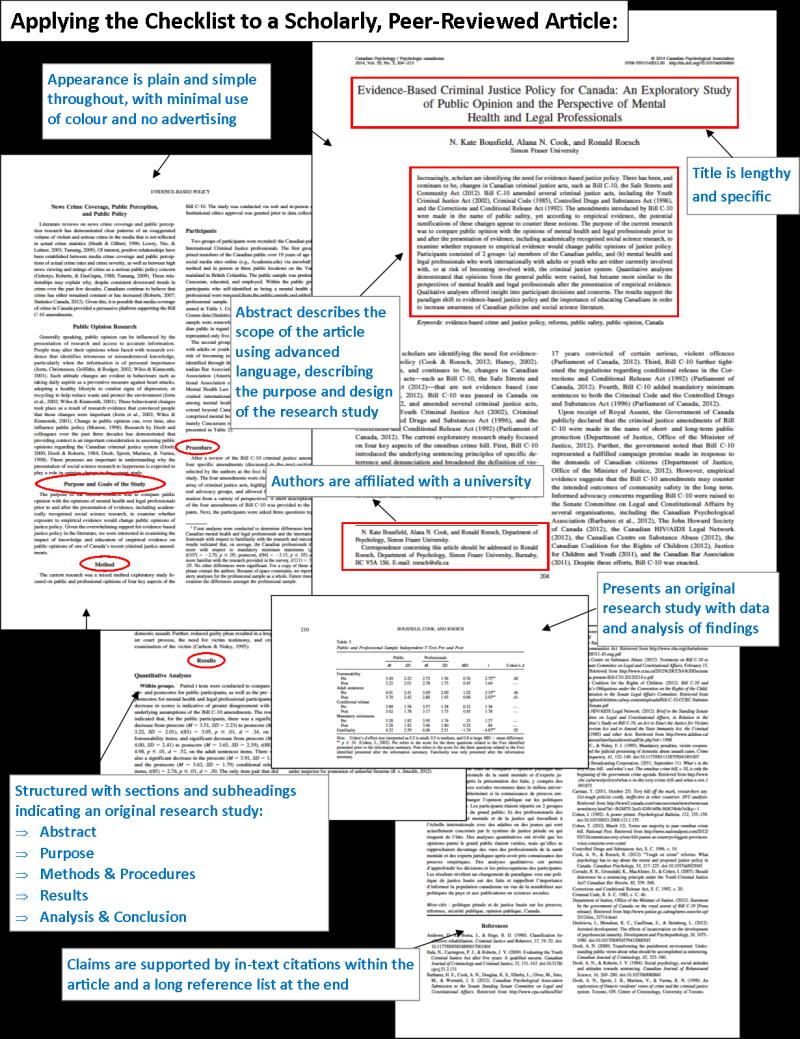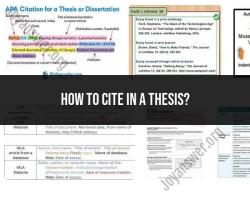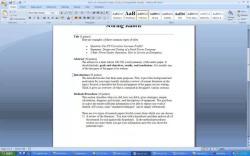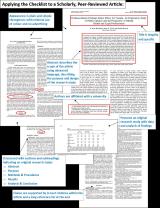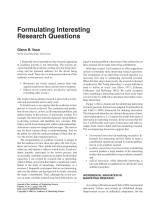How do you grade a research paper for article analysis?
Grading a research paper for article analysis involves assessing various components, including the student's understanding of the assigned article, critical thinking skills, writing ability, and the incorporation of relevant research concepts. Here is a general guide that can be adapted based on the specific requirements of your assignment:
1. Understanding of the Article (Content)
- Thesis Statement: Check if the student presents a clear and concise thesis statement that reflects the main point or argument of the article.
- Summary: Evaluate the accuracy and completeness of the article summary. Ensure the student captures the key points, main arguments, and supporting evidence.
- Analysis: Assess the depth of analysis. Does the student provide insightful commentary on the article's strengths, weaknesses, and implications?
2. Critical Thinking and Argumentation
- Critical Evaluation: Examine the student's ability to critically evaluate the article. Are they able to identify biases, limitations, or gaps in the research?
- Argument Structure: Evaluate the organization of the paper. Does it have a logical flow? Is the argument well-structured and easy to follow?
- Supporting Evidence: Check for the use of relevant and credible evidence to support the analysis. Are there specific examples or quotes from the article?
3. Writing Style and Clarity
- Grammar and Mechanics: Assess the paper for grammatical errors, spelling mistakes, and proper use of punctuation.
- Clarity of Expression: Evaluate the clarity of the student's writing. Is the language clear, concise, and appropriate for the intended audience?
- Transitions: Check for smooth transitions between ideas and paragraphs. Ensure that the paper has a cohesive and coherent structure.
4. Incorporation of Research Concepts
- Use of Concepts: Evaluate whether the student applies relevant concepts from the course or discipline to analyze the article.
- Integration of Sources: Assess the integration of additional sources beyond the assigned article. Are these sources used effectively to support the analysis?
5. Formatting and Citations
- Formatting Style: Check if the paper follows the required formatting style (e.g., APA, MLA) for citations, headings, and references.
- Citations: Ensure proper citation of the assigned article and any additional sources used. Check for accuracy and consistency in citing references.
6. Overall Impression and Creativity
- Creativity: Assess whether the student brings creativity or a unique perspective to the analysis.
- Engagement: Consider the level of engagement with the material. Does the student show enthusiasm for the topic?
7. Adherence to Guidelines
- Adherence to Instructions: Check if the paper adheres to the specific guidelines provided for the assignment. Assess if the student meets the length requirement and follows any other instructions.
Additional Tips:
- Provide Feedback: Offer constructive feedback on both strengths and areas for improvement.
- Rubric: Consider using a grading rubric with clearly defined criteria to ensure consistency in evaluation.
- Encourage Revision: If applicable, encourage students to revise and resubmit their papers based on your feedback.
Remember to adapt these criteria based on the specific learning objectives and expectations for your course.
What criteria are used to evaluate and grade a research paper focused on article analysis?
Evaluating and grading a research paper focused on article analysis involves assessing several key criteria:
Content:
- Relevance to the topic: Does the article analysis address the assigned topic or research question effectively? Are the chosen articles relevant and appropriate?
- Accuracy and completeness: Is the analysis of each article accurate and complete? Does it capture the main points and arguments of the article accurately and comprehensively?
- Critical analysis: Does the paper go beyond simply summarizing the articles? Does it critically analyze the articles' strengths, weaknesses, limitations, and implications?
- Depth and insight: Does the analysis provide insightful interpretations and original contributions to the understanding of the topic? Does it demonstrate a deep understanding of the relevant literature and theoretical frameworks?
- Logical flow and organization: Is the analysis well-organized and logically structured? Does it flow smoothly between articles and present a coherent argument?
Methodology:
- Selection of articles: Were the articles chosen for analysis appropriate and representative of the relevant literature? Was the selection process clearly explained and justified?
- Analysis methods: Were appropriate and rigorous methods used to analyze the articles? Were the methods clearly explained and justified?
- Objectivity and neutrality: Was the analysis objective and neutral, avoiding bias or personal opinions?
Writing and presentation:
- Clarity and conciseness: Is the writing clear, concise, and easy to understand?
- Grammar and mechanics: Is the paper free of grammatical errors and typos?
- Citations and references: Are all sources cited correctly and consistently using a proper academic referencing style?
- Formatting and presentation: Is the paper formatted according to the specific instructions or guidelines provided?
- Originality and creativity: Does the paper present original ideas and insights? Does it demonstrate a creative approach to the topic?
Additional factors:
- Research contribution: Does the article analysis contribute significantly to the understanding of the topic? Does it offer new insights or perspectives?
- Impact and significance: Does the article analysis have potential for broader impact beyond the specific topic or field of study?
Grading rubric:
Many instructors use a rubric to grade research papers focused on article analysis. A rubric typically includes a list of the criteria mentioned above, along with specific descriptors and point values for each level of performance (e.g., excellent, good, satisfactory, unsatisfactory). This allows for a more objective and consistent evaluation of the paper.
It is important to note that the specific criteria and weighting may vary depending on the instructor, the course, and the specific research question or topic. Always consult the assignment instructions and the course syllabus for specific details about the expectations for the article analysis paper.
